
When I arrived in Berlin to take up a scholarship in early 1987, I found a city frozen in deep winter and Cold War division. The only ways through its notorious Wall were checkpoints where anything could happen.
The city seemed frozen solid. Skaters used the Spree river and canals as fumefree highways. Cars skidded as they took off from the lights. When I walked to the U-Bahn subway from my apartment each morning, I checked the temperature on the big thermometer in the apotheke's window and began a daily guessing game. I knew that it was at least minus 10 when the hairs in my nostrils began to freeze. It was my first time in Berlin, and the big freeze of January 1987 cast a magical glitter over the divided city, adding to the sense of mystery and dark drama. A friend with a flat overlooking the Tiergarten station told me that it would take Soviet tanks only 15 minutes to reach them from the Brandenburg Gate.
In this atmosphere, with images of the movie The Spy Who Came in from the Cold surfacing in my head, I took the S-Bahn (rapid rail) to Friedrichstrasse station to make my first crossing of the Berlin Wall. My New Zealand friend, Gunter Bennung, had made contact with Jutta Bach, his old school friend from Potsdam days, and encouraged me to visit her. I was able to telephone to fix a time to meet her at the station. It was the only checkpoint available for foreigners crossing on foot. We spoke carefully above the clicks and hissing that signified the listeners. I told her I was a friend of an old friend who would like to take her to dinner. And she replied, in a measured voice, that she would be very happy to host me on my first visit to, loudly, "the capital of the DDR [Deutsche Demokratische Republik, in East Germany]". At the station, she would be wearing a blue and yellow scarf, colours of the Freie Deutsche Jugend (Free German Youth) so that she would be easy to recognise.
Diese Geschichte stammt aus der November 18-24 2023-Ausgabe von New Zealand Listener.
Starten Sie Ihre 7-tägige kostenlose Testversion von Magzter GOLD, um auf Tausende kuratierte Premium-Storys sowie über 8.000 Zeitschriften und Zeitungen zuzugreifen.
Bereits Abonnent ? Anmelden
Diese Geschichte stammt aus der November 18-24 2023-Ausgabe von New Zealand Listener.
Starten Sie Ihre 7-tägige kostenlose Testversion von Magzter GOLD, um auf Tausende kuratierte Premium-Storys sowie über 8.000 Zeitschriften und Zeitungen zuzugreifen.
Bereits Abonnent? Anmelden
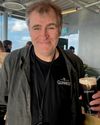
Sights to behold
Being blind didn't deter Aucklander FRASER ALEXANDER and his partially-sighted wife from travelling in Europe. Their memories were shaped by sound, touch and smell.
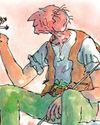
Pages of delight
Charming survey of children's literature throughout the centuries should be treasured and reread.
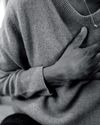
Heart of the matter
Women are less likely to be diagnosed with heart disease than men, and less likely to get best treatment. Researchers are struggling with old stereotypes to right the balance.

Balaclava beats
Their paramilitary shtick is intentionally menacing, offensive and alienating, but to be fair to the hip-hop trio Kneecap, their infamous balaclava is disarmingly hilarious. Kneecap, the 2024 movie that offers a fictionalised account of their rise to fame, is a Bafta- and Oscar-nominated Northern Irish film sensation.

Friends like these
One of the stranger characteristics of the populist oligarchy mobilising around Donald Trump's new administration is the interest taken in the domestic politics of the UK.

Irresistible force
A new documentary about gentle rugby giant Jonah Lomu reveals little but is a reminder of what made him special.

Fleeing the nest
A tale of building a new life after an abusive relationship makes for an impressive debut.

Life less ordinary
Chelsie Preston Crayford follows a big 2024 with a new comedy role and putting the finishing touches on her debut feature as a director and writer.
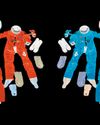
Not on our watch
Nasa, one of the most technologically advanced organisations on the planet, made prospective astronauts take inkblot tests to determine their sexuality.
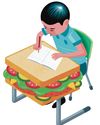
No free lunch
The new, cut-price school lunch programme will shut out many community providers. But will bulk-supplied meals meet children’s needs?